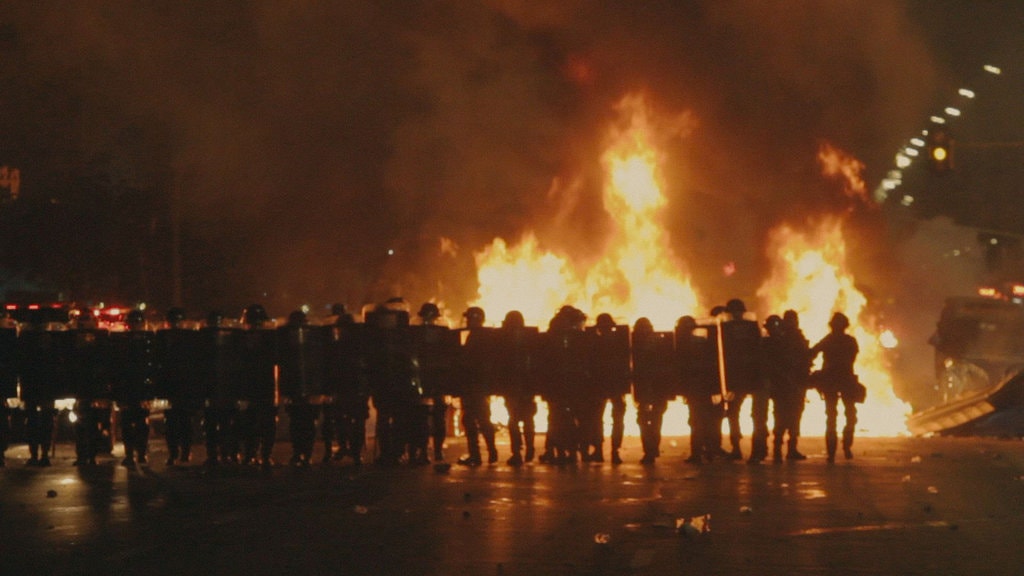The Edge Of Democracy

(Petra Costra’s The Edge of Democracy premiered at the 2019 Sundance Film Festival before heading to Netflix this last fall. It’s also been nominated for an Oscar for Best Documentary. Like what you see here on Hammer to Nail? Why not pay just $1.00 per month via Patreon to help keep us going?)
Luiz Inácio Lula da Silva, a former metalworker and union representative, most often called simply “Lula,” served as president of Brazil from 2003 to 2011, embodying, as founder and head of the Workers’ Party, a shift away from the centrist and right-wing policies that had dominated the country since the fall of the military dictatorship in 1985. Extremely popular at the end of his two terms in power, despite some early corruption scandals, he was able to more or less designate his successor, Dilma Roussef, who became Brazil’s first female president upon her subsequent election. His legacy, it seemed, was sure to live on.
Unfortunately, the economic successes of the Lula era did not continue under Roussef (for a variety of reasons), and soon the nation’s elite turned on her, eventually succeeding in having the parliament impeach her in 2016. Not content to bring her down, and worried about a renewed threat from the left, the ruling class brought charges against Lula, himself, for an alleged kickback scandal, charges which eventually landed him in jail in early 2018, the same year that right-winger Jair Bolsonaro won the presidency (Lula was finally released on November 8, 2019). That’s quite the turnaround, though to be fair, the political shift in the United States, from Barack Obama to Donald Trump, was even more surprising and abrupt.
If the above seems complicated and hard to fathom, have no fear, for you are in the hands of capable filmmaker Petra Costa (Olmo and the Seagull) as you watch The Edge of Democracy, her account of not only the last decade, but of all that led to it beforehand, and the global repercussions that it entails. The documentary is also structured as an “it can happen anywhere” kind of alert, warning of anti-democratic movements everywhere. Be afraid; be very afraid.
Costa is the child of left-wing Brazilian activists who suffered under the dictatorship, and is also the granddaughter of one of the founders of a construction company involved in the scandals that led to Roussef’s impeachment. She has a very personal stake in the story, in other words, and her resultant access to the people involved allows her to gather exceptionally intimate footage. That, combined with her first-hand knowledge of the region, makes The Edge of Democracy feel like a particularly insightful look at what went wrong. Given her years of study in the United States (at Barnard) and in the United Kingdom (at the London School of Economics), Costa comes to the story with a simultaneous healthy outsider’s perspective, as well. Together, both points of view allow her to construct a narrative that is, yes, firmly on the more progressive side, but not without its criticisms of those with whom she otherwise agrees.
In short, the just recently Oscar-nominated The Edge of Democracy is a powerful, if slightly overlong, work of polemical filmmaking backed up by solid research and made universal by the way Costa focuses on specifics that apply to other systems, as well. Spoken in her own voice, directly addressing the audience in cadences alternately dispassionate and spirited, the voiceover guides us towards the points she deems vital, supported by evocative visuals that carefully set the stage for each sequence. We would all do well to watch and learn, lest our own fragile democracies, no matter where we are or what we think of them, fall off their crumbling edges into the abyss.
– Christopher Llewellyn Reed (@ChrisReedFilm)
Like what you see here on Hammer to Nail? Why not pay just $1.00 per month via Patreon to help keep us going?
**Editors note: Hammer to Nail’s Matthew Delman worked on the (successful!) Oscar ad campaign for this film.











